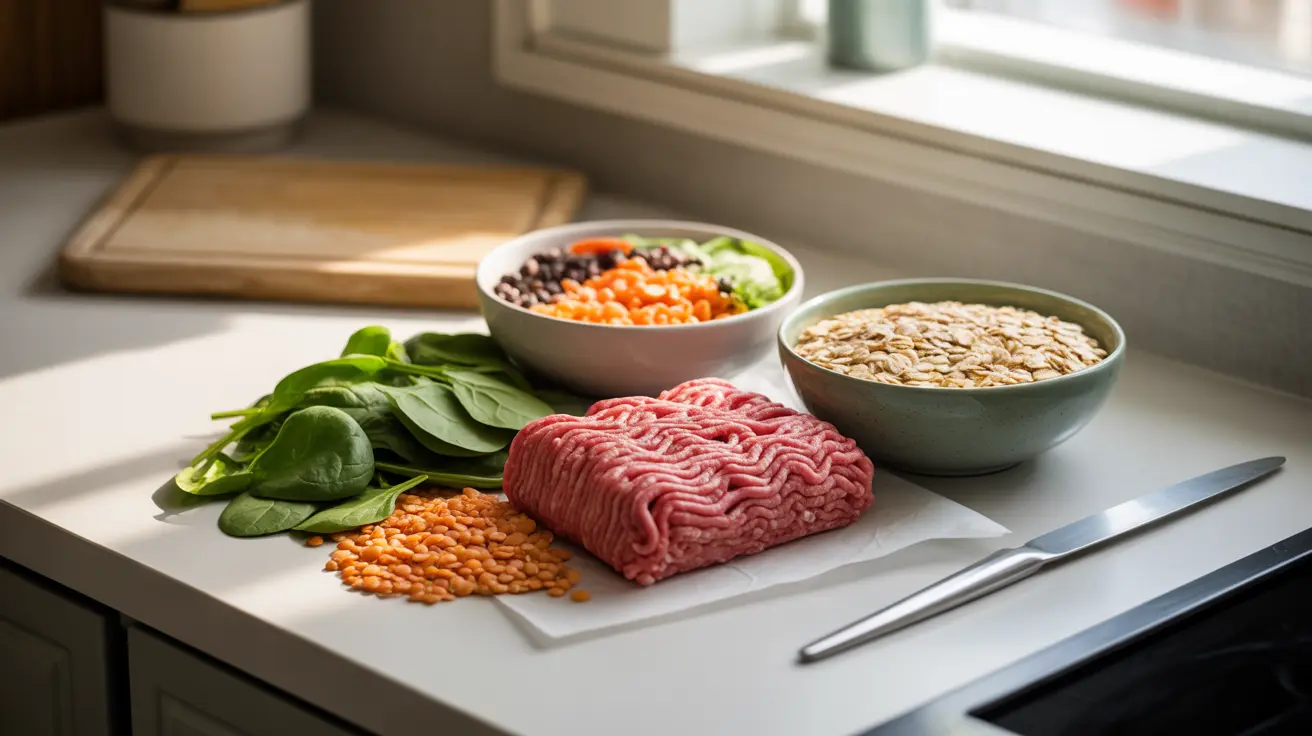Ensuring adequate iron intake during pregnancy is crucial for both maternal health and fetal development. As your body's demand for iron increases significantly during pregnancy, understanding which foods can help meet these elevated needs becomes essential for preventing iron deficiency anemia and supporting a healthy pregnancy.
This comprehensive guide will explore the best iron-rich food sources for pregnant women, including options for both meat-eaters and vegetarians, while providing practical tips for maximizing iron absorption from your diet.
Animal-Based Iron Sources for Pregnancy
Animal sources provide heme iron, which is more easily absorbed by the body compared to non-heme iron from plant sources. Here are some excellent options:
- Lean red meat (beef, lamb)
- Organ meats (liver, although limit consumption during pregnancy)
- Dark meat poultry
- Fish (sardines, salmon)
- Eggs (especially egg yolks)
Plant-Based Iron Sources for Pregnancy
Plant-based foods contain non-heme iron and are excellent options for vegetarians and vegans. These include:
- Legumes (lentils, beans, chickpeas)
- Dark leafy greens (spinach, kale, Swiss chard)
- Fortified cereals and grains
- Quinoa and other whole grains
- Tofu and tempeh
- Dried fruits (raisins, apricots)
Maximizing Iron Absorption
To optimize iron absorption from your diet, consider these strategies:
- Pair iron-rich foods with vitamin C sources (citrus fruits, bell peppers, strawberries)
- Avoid consuming iron-rich foods with calcium supplements or dairy products
- Cook in cast-iron cookware when possible
- Limit tea and coffee consumption during meals
Special Considerations for Vegetarian and Vegan Pregnancies
If you follow a plant-based diet, you may need to pay extra attention to your iron intake. Consider these approaches:
- Incorporate a variety of iron-rich plant foods daily
- Focus on vitamin C-rich food combinations
- Consider iron supplementation after consulting with your healthcare provider
- Regular monitoring of iron levels through blood tests
Signs of Iron Deficiency During Pregnancy
Being aware of potential iron deficiency symptoms is important. Watch for:
- Unusual fatigue or weakness
- Shortness of breath
- Pale skin and mucous membranes
- Dizziness or lightheadedness
- Cold hands and feet
Frequently Asked Questions
1. What are the best foods high in iron for pregnant women to prevent anemia?
The best iron-rich foods include lean red meat, poultry, fish, legumes, dark leafy greens, and fortified cereals. Animal sources provide more easily absorbed heme iron, while plant sources offer healthy non-heme iron options.
2. How can I ensure I'm getting enough iron during pregnancy if I'm vegetarian or vegan?
Focus on combining iron-rich plant foods with vitamin C sources, eat a variety of legumes, whole grains, and leafy greens, and consider iron supplementation after consulting with your healthcare provider. Regular blood testing can help monitor your iron levels.
3. What are the symptoms of iron deficiency anemia during pregnancy, and how is it diagnosed?
Common symptoms include extreme fatigue, weakness, dizziness, and pale skin. Diagnosis typically involves blood tests measuring hemoglobin and ferritin levels during routine prenatal checkups.
4. Can I get enough iron from diet alone, or should I consider supplements during pregnancy?
While it's possible to get adequate iron through diet, many pregnant women need supplementation to meet increased demands. Consult your healthcare provider for personalized recommendations based on your iron levels and dietary habits.
5. How can I enhance iron absorption from plant-based foods during pregnancy?
Enhance absorption by combining iron-rich foods with vitamin C sources, avoiding tea and coffee with meals, using cast-iron cookware, and spacing out calcium-rich foods from iron-rich meals. These strategies can significantly improve iron absorption from plant sources.




